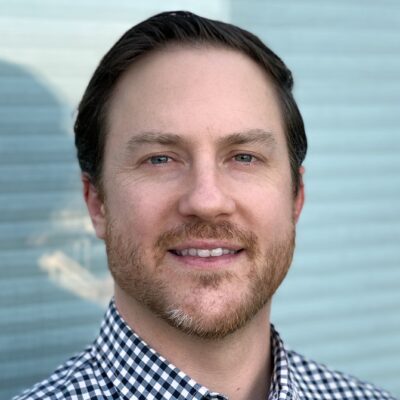Alumni Spotlight: Diego Rey, Ph.D. ’10

April 14, 2025
Diego Rey, Ph.D. ’10, is an alumnus of the biomedical engineering doctoral program at Cornell with minors in applied and engineering physics and biophysics. He is now CEO of Gemini Therapeutics, Inc.
Tell us about your current position and what you find rewarding about it.
I’m currently starting a new company focused on finding the fastest path to FDA approval for cancer therapies that could help patients today but haven’t yet received approval. We’re also exploring how to enable n-of-1 treatments for individual cancer patients. What I find most rewarding is the potential to offer new options to people who urgently need them.
How did your Cornell graduate education prepare you to succeed professionally?
At Cornell, I became both a scientist and an entrepreneur. As a scientist, you uncover truth and generate new knowledge. As an entrepreneur, you take those insights and make them useful. That combination has shaped everything I’ve done since.
If you were supported by a fellowship during your graduate studies, how did it help you?
I was fortunate to receive the Ruth L. Kirschstein NRSA from the NIH, the Cornell Sage Fellowship, the Sloan Fellowship, and the Cornell Nanobiotechnology Center Fellowship. These fellowships were the reason I chose Cornell — they gave me the freedom to focus on research and the flexibility to explore entrepreneurship, which ultimately led to founding GeneWEAVE while still in graduate school. With funding for institutions like the NIH under pressure, it’s important to recognize that fellowships are not just support — they’re investments. In my case alone, those fellowship dollars helped catalyze hundreds of millions in economic activity and created hundreds of jobs. The return on investment can be enormous.
What does it mean to you to recently have been elected as an AIMBE Fellow?
It’s an honor to be elected to the AIMBE College of Fellows. I’m humbled by the accomplishments of those already in the fellowship and those inducted alongside me. It’s rewarding to have my work in diagnostics and precision medicine recognized — work made possible by many mentors, teammates, and collaborators I’m grateful for. Becoming a fellow also feels like a call to action: to contribute to improving the scientific and regulatory institutions that have enabled our country to lead in innovation.
Taking the time to speak at events and mentor doctoral students at Cornell, why do you find it important to work with current students who were once in your shoes?
That’s what made me an entrepreneur. During a Summer Research Experience for Undergraduates at Cornell, I heard a talk from Steve Turner, Ph.D. ’00, just after Pacific Biosciences, the company he founded out of Cornell, raised a Series A. It was the first time I realized that you could take fundamental science and build a company around it. That day, I knew I wanted to do the same. I also learned a lot from other founders who came to speak on campus, like Don Gonzales, M.D. ’00.
What do you enjoy doing outside of work?
Spending time with family, our German shepherd dog, Callie, and cycling.
If you could go back in time to the beginning of your graduate school journey, what advice would you give yourself?
Find founder mentors early. As a first time entrepreneur you think everything is important and existential and as a second time entrepreneur you know what really is important and what is not. Advice from experienced founders helps a lot.
